Temple J-School Launches Investigative Unit
Paul Cheung to Lead Center for Public Integrity
Homepage photo: The scene of a triple shooting in Philadelphia last week, at Keim and East Ontario streets. (Credit: Jessica Griffin/Philadelphia Inquirer)
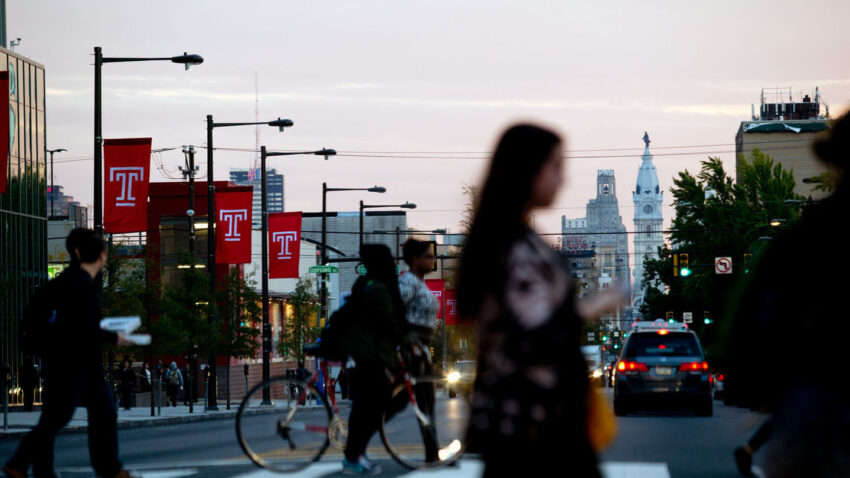
Temple J-School Launches Investigative Unit
“Temple University’s Klein College of Media and Communication will soon launch a Center for Urban Investigative Reporting, thanks to a $1.2 million founding grant from the Jonathan Logan Family Foundation of Berkeley, California,” the college announced Tuesday.
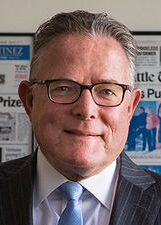 Asked how many other universities have such centers, Dean David Boardman (pictured) messaged Journal-isms, “Not sure. I know of several: Berkeley, Maryland, Arizona State, for starters. But I believe ours will be the only one exclusively focused on urban issues and dedicated to community input and engagement. “
Asked how many other universities have such centers, Dean David Boardman (pictured) messaged Journal-isms, “Not sure. I know of several: Berkeley, Maryland, Arizona State, for starters. But I believe ours will be the only one exclusively focused on urban issues and dedicated to community input and engagement. “
He said the school was seeking a director.
The announcement came as the Philadelphia Inquirer reported that, “An average of more than 10 people have been shot per day in Philadelphia in July, as of Sunday. That July pace is 53% higher than last year, and 159% higher than 2019.”
Two weeks ago, New York Gov. Andrew Cuomo declared a new state of emergency around gun violence and committed almost $139 million to reverse the trend of rising shootings and murders across the state. Cuomo said it was the first by a state to address gun violence, Ashley Southall reported for The New York Times.
According to Temple’s Klein College news release, “The Jonathan Logan Family Foundation Center for Urban Investigative Reporting will focus exclusively on the issues facing Philadelphia and other large American cities, including gun violence, economic inequality, education and health disparities, crumbling infrastructure and eroding trust in institutions.
“Through the Logan Center, Klein students and faculty will report aggressively not only on these problems, but on potential solutions, closely examining what has worked well in other cities across the nation and the globe.”
Boardman is also vice chair of the Solutions Journalism Network. That organization says on its website, “As news avoidance and distrust grow, solutions journalism has rapidly grown from an ‘extra’ to a must-have for newsrooms building or repairing relationships with their communities. These results reveal the extent to which audiences respond to solutions journalism in ways that can strengthen local news.”
“Klein has long had a ‘teaching hospital’ model for preparing students for careers in journalism and other communications professions, giving them a strong foundation in theory and research along with myriad opportunities to hone their skills on campus and in the community. Through the college’s Philadelphia Neighborhoods capstone class, students report from areas of North and West Philadelphia that are largely overlooked by mainstream media. . . .”
- Solutions Journalism Network: Francine Huff joins Solutions Journalism Network as director of journalism school partnerships
- Helen Ubiñas, Philadelphia Inquirer: Mayor Kenney’s decision not to declare gun violence an emergency is an act of cowardice
Paul Cheung to Lead Center for Public Integrity
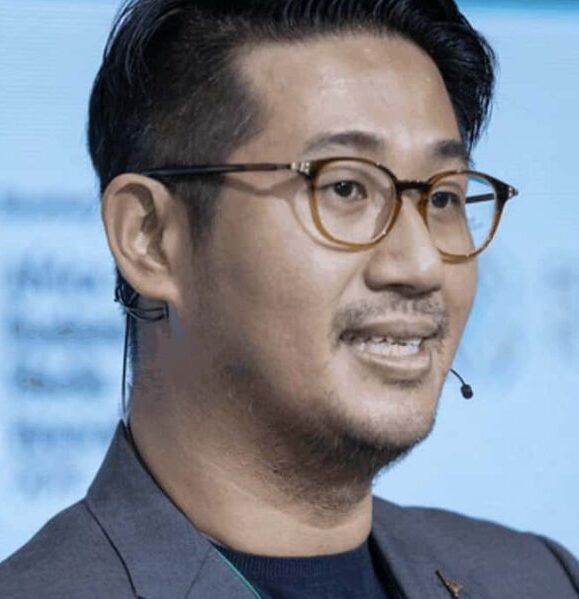 Paul Cheung (pictured), a past president of the Asian American Journalists Association and most recently director of journalism and technology innovation at the Knight Foundation, has been named CEO of the Center for Public Integrity. He “will lead one of the country’s oldest nonprofit news organizations in its mission of investigative reporting about inequality,” the Washington-based organization said Monday.
Paul Cheung (pictured), a past president of the Asian American Journalists Association and most recently director of journalism and technology innovation at the Knight Foundation, has been named CEO of the Center for Public Integrity. He “will lead one of the country’s oldest nonprofit news organizations in its mission of investigative reporting about inequality,” the Washington-based organization said Monday.
In a question-and-answer on the Center’s website, Cheung said, “Public Integrity has a rich history of holding the powerful accountable, and I want to use that power to hold those people and systems who are perpetuating or worsening inequality accountable as well as uplifting those who are solving the problems of inequality.
“My vision is for us to be the leading newsroom in America in equipping and inspiring change makers with our investigative journalism to reverse the effects of inequalities.”
Cheung previously worked at NBC News Digital, the Associated Press, The Wall Street Journal and the Miami Herald, and he is a board member of the News Leaders Association.
As Kristin Hare reported Monday for the Poynter Institute, Cheung “succeeds Susan Smith Richardson, who became deputy editor of The Guardian US earlier this year. Cheung is the first Asian American to lead the Center for Public Integrity, which was founded in 1989 and is an investigative, nonprofit news organization.”
On his LinkedIn profile, Chung emphasizes his background in technology. “I manage a multimillion dollar investment portfolio at the Knight Foundation. My key investment areas include scaling AI [artificial intelligence], business sustainability solutions, and mitigating misinformation,” he wrote.
“With more than 20 years of experience at the forefront of digital transformation in the media — pioneering AI, data journalism, AR/VR [Augmented Reality/Virtual Reality], visual storytelling and digital training strategies, I am ready to lead media companies looking to launch breakthrough ideas from concept to reality across new digital and emerging technology platforms.”
AAJA membership declined during Chung’s four years as president, as newsrooms shrank, but in his farewell message in 2016, Cheung listed these successes:
- “Partnering with more than 30 community groups to host the first Asian American Presidential Town Hall, which featured principals and surrogates from all major campaigns.
- “Launching ‘The Heartland Project,’ a first-of-its-kind partnership among the National Lesbian & Gay Journalists Association and the University of Nebraska-Lincoln to help newsrooms in the
- “Cornhusker State do a better job in covering communities of color and LGBT issues.
- “Acquiring more than $300,000 in grants and sponsorships to reboot AAJA’s signature journalism programs, including the Executive Leadership Program.
- “Holding newsrooms accountable by aggressively responding — via our MediaWatch team — to unfair, irresponsible and inaccurate coverage of our communities.”
Cheung advocated for keeping AAJA in the Unity: Journalists of Color coalition after the National Association of Black Journalists and National Association of Hispanic Journalists pulled out, and AAJA remained until Unity dissolved in 2018.
Race, Colorism on Latino Journalists’ Agenda
July 18, 2021
Updated July 19
Record Membership for NAHJ’s Virtual Convention
Israeli Machines Spy on Reporters’ Cell Phones
Black Paper Plans Store at Nashville Airport
Anti-Immigration Groups Have Hateful Origins
Immigrants Portray Punishing Lives as Detainees
Editor Challenges Readers After Racist Email
Amid Protests, Cuba Detains 7 Journalists
Media Said to Miss Afro-Cuban Role in Unrest
With Oligarchs in Charge, Haiti Not Truly Black-Run
News Outlets Shouldn’t Let Others Define Them
Biden Takes Aim at Noncompete Clauses
Illinois Mandates Teaching Asian American History
‘How To Diversify Your Station’s Workforce . . .’
‘Culture of Inclusion’ Hailed on MSNBC’s 25th
Short Takes
Support Journal-ismsTelemundo host Nacho Lozano guided viewers through the Hall of Fame ceremony. (video)
Record Membership for NAHJ’s Virtual Convention
The National Association of Hispanic Journalists pulled off a record-setting virtual convention that addressed colorism among Latinos and the mental health concerns resulting from covering the traumas of the past year, along with the issues of the day and career-building workshops.
The week’s conference closed Saturday night with an hourlong Hall of Fame awards ceremony simulcast to Facebook viewers without charge and later posted on YouTube.
It educated Latinos and non-Latinos alike about some of the obstacles faced by earlier generations — in one case dubbed “Juan Crow” — and how storytellers faced the challenges.
There was little evidence of the rancor that marked some previous conventions. “We were trying to push forward the mantra that we were the ‘no-drama board,’ ” President Nora Lopez said at a board and membership meeting held by Zoom on Saturday afternoon. Lopez said she thinks the board succeeded.
On Friday, spokesperson BA Snyder told Journal-isms that the association had registered 1,136 people. That contrasts with 704 NAHJ registrants for the joint virtual convention last year with the National Association of Black Journalists, which supplied 3,009 NABJ attendees. Figures for sponsorships were not addressed.
NAHJ membership climbed to a new high, as it did last year. The organization reported 4,336 members, of whom 2,433 were regular members, 1,044 were students, 220 were lifetime, 392 were associate and 247 were academic. Two percent identified as Afro-Latino.
The discussion of colorism among Latinos follows another that reached a wider audience last month when the movie “In the Heights” was released.
As Aja Romano explained then on vox.com, “Despite an early onslaught of critical praise, the highly anticipated film adaptation of Lin-Manuel Miranda’s first Broadway musical In the Heights failed to draw crowds to movie theaters over its premiere weekend. Instead, a wave of backlash surfaced over the film’s lack of visibly dark-skinned Afro Latinx characters — the very community the film purports to represent.”
 In her closing remarks, Lopez declared that “discrimination and erasure” were not NAHJ values, nor were “anti-Blackness” or actions against indigenous people. NAHJ established a task force on Afro-Latinos, co-chaired by Yvonne Latty (pictured) of New York University, a past board
In her closing remarks, Lopez declared that “discrimination and erasure” were not NAHJ values, nor were “anti-Blackness” or actions against indigenous people. NAHJ established a task force on Afro-Latinos, co-chaired by Yvonne Latty (pictured) of New York University, a past board 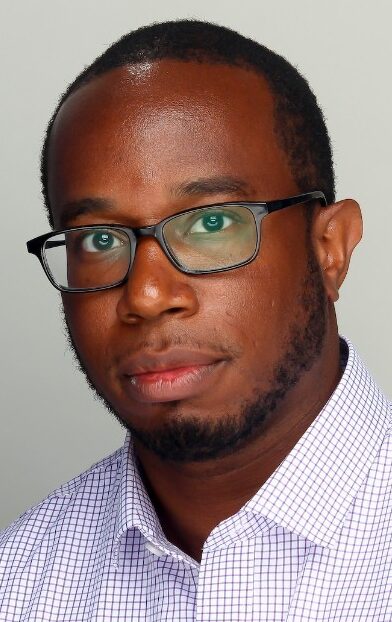 member, and Keldy Ortiz (pictured), a reporter at Newsday who is NAHJ’s national financial officer. Both have Dominican backgrounds.
member, and Keldy Ortiz (pictured), a reporter at Newsday who is NAHJ’s national financial officer. Both have Dominican backgrounds.
One of the posthumous Hall of Fame honorees was Jesús Colón, born in Puerto Rico in 1901, whose “stories about his personal struggles as a Black Puerto Rican, touched and inspired many writers,” as NAHJ said.
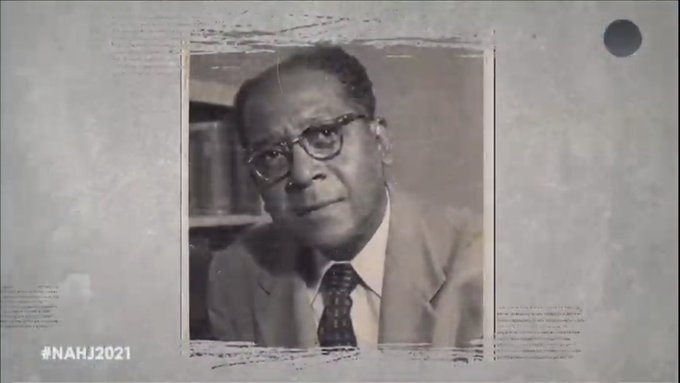
On one panel devoted to the colorism issue, the speakers made clear that it is not a simple topic. “Indhira Suero Acosta, an editor for Connectas in the Caribbean who identifies as Afro-Latina, spoke about the differences in how racism manifests itself across North and South America,” Jorge Flores wrote in the Latino Reporter, the student convention newspaper.
‘” ‘Each country in Latin America has their own experience regarding racism,’ Suero said. ‘Once, I went to Peru, and because there is no Afro-Latino representation, people were speaking to me in English because of my looks.’ ”
That Latinos and others of color were more heavily affected by the COVID pandemic took a toll on some Latino journalists. Some sessions addressed the issue of self-care, though at the membership meeting one woman on the call asked that such sessions be more culturally specific to Latinos.
The last year’s nasty political divisiveness and confrontations sparked by protests over the murder of George Floyd also had an effect. “Journalists of color are targeted for who they are and what they have to say,” Lopez observed.
“The arrest of CNN correspondent Omar Jimenez during a live shot in Minneapolis was only the most visible example in a series of perilous police encounters for journalists,” a webinar advertised. “And the hazards facing reporters in the field go well beyond physical safety. “
Workshops and plenary sessions were wide-ranging, from a revival of the NAHJ Sports Task Force to how to succeed at investigative reporting. Especially significant was a panel on the erasure of Latino history, joined by Rep. Joaquin Castro, D-Texas, taking place as efforts to more accurately portray American history are under attack.
Saturday saw two last-minute additions. One was Secretary of Education Miguel A. Cardona, who addressed the need for historical inclusiveness. “At #NAHJ2021, U.S. Sec. of Education
@teachcardona encourages curriculum that includes diverse perspectives,” Monica Rhor tweeted. “It’s the responsibility of local boards, he says, to make sure that happens.” Cardona, the first Puerto Rican to hold the post, was interviewed by CBS News’ Ed O’Keefe.

Later, in honoring activist journalist Jovita Idár posthumously for the Hall of Fame, the lynchings of Hispanics in Texas — another little-mentioned topic — was cited as one of her challenges.
The second Saturday addition was a discussion of the ongoing protests in Cuba. “There’s been healthy debate during the #NAHJ2021 ‘Bringing Balance to News Coverage of the Protests in Cuba’ session!,” tweeted Leslie-Ann Frank. “But, there is agreement that U.S. coverage has fallen short.”
The convention closed with words from Gilbert Bailon, editor of the St. Louis Post-Dispatch and an NAHJ president from 1994 to 1996. He was given the President’s Award.
While his own newspaper reported only 14.47 percent people of color in the 2019 newsroom diversity survey of the News Leaders Association [PDF], Bailon cited the need for more top editors, news directors, members of boards of directors and college deans of color, saying that people of color must be in leadership positions for true change to take place.
“We’re the ones who need to train, get educated, make those extra efforts, work the hardest,” Bailon urged. He also said, “Ultimately, it’s not about your career. There’s a greater mission we have.”
- Brianna Atkinson, University of North Carolina Hussman School of Journalism and Media: How Chatham News + Record Started Reporting in Spanish
- Camille Baker, Dart Center for Journalism & Trauma: How Can Indigenous Reporters Care for Themselves While Covering Trauma — and How Can Their Newsrooms Help?
- Justin Baragona and Asawin Suebsaeng, Daily Beast: Trumpist Network OAN Plans to Launch a Spanish-Language MAGA Channel
- David Folkenflik, NPR: Latina Journalists Who Challenged TV Station Leaders Were Let Go In Short Succession
- Karla Gutierrez, Palabra, National Association of Hispanic Journalists: Diary Of A Pandemic: Life On The Front Line (May 7)
- Knight Center for Journalism in the Americas: Knight Center launches book on ‘Diversity in Latin American Journalism’ during NAHJ conference
- Jenny Manrique, Palabra, National Association of Hispanic Journalists: Diary Of A Pandemic: The Caregivers (May 31)
- Olivia Montes, Latino Reporter: NAHJ virtual conference: America’s largest gathering of Latino journalists convenes online for second time
- National Association of Hispanic Journalists: NAHJ calls for an independent review of arrest and press freedom violation against Univision Arizona journalist (July 6)
- Denisse Quintanilla, Latino Reporter: ‘I didn’t think I belonged’: Q&A with Shea Serrano, the winner of NAHJ’s humanitarian award
- Denisse Quintanilla, Latino Reporter: ANALYSIS: Major news outlets use inflammatory language to describe migrants, despite calls to stop

Israeli Machines Spy on Reporters’ Cell Phones
“Tsaone Basimanebotlhe was not expecting security agents to appear at her home in a village outside Gaborone, Botswana’s capital, in July 2019, she told CPJ in a recent interview,” Jonathan Rozen wrote Wednesday for the Committee to Protect Journalists. “But they didn’t come to arrest or charge her, she recalled – they came for her devices, hunting for the source for an article published by her employer, Mmegi newspaper.
 “Basimanebotlhe (pictured), a politics reporter, said she surrendered her phone and password to the agents after they presented a warrant and could not find her computer. A senior officer then used technology sold by the Israel-based company Cellebrite to extract and analyze thousands of her messages, call logs, and emails, and her web browsing history, according to an affidavit from the police forensics laboratory. The affidavit, which CPJ reviewed, was submitted during a related court case. . . .
“Basimanebotlhe (pictured), a politics reporter, said she surrendered her phone and password to the agents after they presented a warrant and could not find her computer. A senior officer then used technology sold by the Israel-based company Cellebrite to extract and analyze thousands of her messages, call logs, and emails, and her web browsing history, according to an affidavit from the police forensics laboratory. The affidavit, which CPJ reviewed, was submitted during a related court case. . . .
“The use of powerful tools provided by private companies to scour seized devices raises significant concerns over privacy and press freedom. The experiences of Basimanebotlhe . . . demonstrate that police in Botswana use digital forensics equipment to sweep up vast quantities of journalists’ communications from seized devices, regardless of whether they are charged with a crime. The extent of these searches was only revealed when police documents were submitted in court months after the fact, and it’s not clear what happened to the data. . . .”
The Israeli news organization Harretz reported in April, “Cellebrite’s flagship product is the UFED (Universal Forensic Extraction Device). It allows law enforcement agencies to extract data from locked mobile phones already in their physical [possession.] Cellebrite, which recently announced it was going public, works with law enforcement agencies and has a long list of clients – including regimes with shady human rights records. . . .”
[Update: The Washington Post reported late Sunday: “Military-grade spyware licensed by an Israeli firm to governments for tracking terrorists and criminals was used in attempted and successful hacks of 37 smartphones belonging to journalists, human rights activists, business executives and two women close to murdered Saudi journalist Jamal Khashoggi, according to an investigation by The Washington Post and 16 media partners.
[“The phones appeared on a list of more than 50,000 numbers that are concentrated in countries known to engage in surveillance of their citizens and also known to have been clients of the Israeli firm, NSO Group, a worldwide leader in the growing and largely unregulated private spyware industry, the investigation found,” began the story by Dana Priest, Craig Timberg and Souad Mekhennet.]
- Alan Suderman, Associated Press: Microsoft says it blocked spying on rights activists, others
- Oded Yaron, Haaretz, Israel: Cellebrite Used to ‘Violate Human Rights,’ Stop Their IPO, Rights Groups Urge

Black Paper Plans Store at Nashville Airport
In a rare move for a member of the Black press, the Tennessee Tribune is planning news and gift concession at the Nashville airport that will feature not only the Tribune, but 40 African American vendors. “For the first time we will have more than a shoe shine stand at this airport,” Tribune owner Rosetta Miller Perry messaged Journal-isms.
“The development of the space is part of a larger concession program re-development that Fraport is coordinating through a contract with the Airport Authority,” said a spokesperson for Fraport, which operates airport concessions. Perry adds, “The first store will open in the Fall of 2021 and will be located between Terminal C and D in the Southwest Airlines Hub. The second store will be pre-security and will open in the Spring of 2022 and is open to the public and does not require a ticket for entry.”
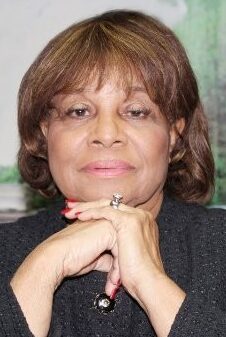 Perry (pictured) continued, “The Airport was expanding and looking to include more diversity. They had only 3 minority firms in since its inception in 1937. Airport officials met with me and said they wanted to have a Tennessee Tribune News Store in the new wing being built at the BNA [Nashville International Airport] and to sell African American products along with mainstream products.
Perry (pictured) continued, “The Airport was expanding and looking to include more diversity. They had only 3 minority firms in since its inception in 1937. Airport officials met with me and said they wanted to have a Tennessee Tribune News Store in the new wing being built at the BNA [Nashville International Airport] and to sell African American products along with mainstream products.
“There was no issue in getting space as there was plenty in the new wing they were building and they had all of that before approaching me.
“Nashville is known as the International City so they reached out to me before reaching out to others as I have a whole lot of history in this city but mainly because I have a well known newspaper statewide.
“How much is the airport charging [for use of the space]? No charge right now. I have lots of support from the city and many others.”
Elaborating, Perry said, “The Tennessee Tribune Stores will reflect the history of the paper in design and architecture while also serving the mainstream needs of the traveler as they seek customary items such as their Coke, Pepsi, Magazines, bottled water and more. The difference between the Tennessee Tribune Stores and other airport stores is the fact that we also have over 40 minority vendors providing top-notch retail products that range from snacks, jewelry, gourmet coffee blends, ready to drink beverages, top shelf wines and spirits, HBCU collegiate apparel, celebrity published works from local authors, traditional souvenirs, items from the world renowned Winfrey Family Foods line and more.
“With over 3,000 square feet of real estate space between two locations, the second location will offer cafe seating that will be open to the public with grab and go food, a creative space with entertainment, and be a great place for family and friends to wait for arriving passengers.”
Anti-Immigration Groups Have Hateful Origins
“Major newspapers and wire services continue to cite white nationalist-linked nativist organizations — two of which have been declared hate groups by the Southern Poverty Law Center (SPLC) — as authorities on immigration, often without mentioning their extremist beliefs or their outsize influence on the Trump administration,” Sergio Munoz and Casey Wexler reported Tuesday for Media Matters for America.
“The Federation for American Immigration Reform (FAIR), the Center for Immigration Studies (CIS), and NumbersUSA are all anti-immigrant groups with deep ties to the late white nationalist and eugenicist John Tanton, who wanted to limit immigration in order to maintain the United States as a white-majority country. Tanton personally founded FAIR and CIS, which have since been classified as hate groups by the SPLC. Although NumbersUSA was not directly founded by Tanton, it originally operated as a part of his foundation, U.S. Inc., and the group’s president and CEO, Roy Beck, was dubbed by Tanton his ‘heir apparent.’ All three of these groups and their leaders were significant influences on the draconian and xenophobic immigration policy of the Trump administration. . . .”

Immigrants Portray Punishing Lives as Detainees
“A vast web of institutions that detain immigrants stretches through every major city in the United States,” Ariel Goodman reported Wednesday for the Marshall Project. “And while undocumented people often power the restaurants and construct the skyscrapers in these urban centers, the detention centers and county jails where they’ve been held for months, or even years, are often invisible to people on the outside.
“In her multimedia project ‘Spaces of Detention,’ photographer and anthropologist Cinthya Santos-Briones pairs the drawings, poetry and oral histories of formerly detained immigrants with collages she makes to shine a light on life in four New Jersey facilities: the Elizabeth Detention Center and the Bergen, Essex and Hudson County jails. . . .
“Isaac Garay Ponce, a Salvadoran immigrant who cleans offices in Jersey City, participated in a workshop last year. He lives five minutes away from the Hudson County Jail where he was detained for three years before winning his asylum case in 2019.
“ ‘I pass by there all the time, and I remember those times with mixed feelings,’ said the 31-year-old who crossed into the U.S. in 2015 after receiving death threats from gangs in El Salvador. ‘No one else can talk about what happens on the inside like we can. No one is going to tell you that the food is bad. That you have to cry in order for someone to give you a roll of toilet paper. That the showers are so hot that they burn your skin. That the officers are racist. So it’s better for people who have been inside to give others an idea of what it’s like. ‘ ”
- James Goodman, the Progressive: Governor Abbott’s Zero Tolerance on Immigration (July 8)
- Carlos Sanchez, the Guardian: Texas borderlands too often a photo op for politicians pushing stereotypes (July 8)
- Ruben Navarrette Jr., Washington Post Writers Group: GOP governors are running to the border, and it’s all politics
Cuban American demonstrators blocked Miami’s Palmetto Expressway Tuesday, stopping traffic. They were voicing their support Tuesday for the people in Cuba and calling for action by the Biden administration. (Credit: Pedro Portal/Miami Herald)
Editor Challenges Readers After Racist Email
Monica Richardson (pictured, below), the first African American editor of The Miami Herald, responded Thursday to a racist email prompted by the Cuban unrest by writing an open letter to the Miami community.
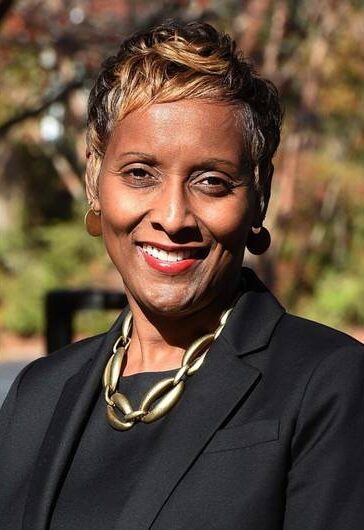 “Dr. Martin Luther King Jr. said, ‘The ultimate measure of a man is not where he stands in moments of comfort and convenience, but where he stands at times of challenge and controversy,’ ” Richardson wrote.
“Dr. Martin Luther King Jr. said, ‘The ultimate measure of a man is not where he stands in moments of comfort and convenience, but where he stands at times of challenge and controversy,’ ” Richardson wrote.
“Miami, who are we in times of challenge? Who are we right now? How are you using your voice?
“Tension should breed intelligent conversation and receptivity.
“Tension should inspire constructive change and action.
“Collectively we have to say enough on racism, in all its forms. And it doesn’t have to be incredibly complex.
“Write to your political leaders when laws feel one-sided, or when laws are needed.
“Speak up when you see someone being treated unfairly.
“Seek different perspectives.
“Find your voice in sending the message that racism is unacceptable.
“And most importantly, don’t be led by misinformation and disinformation. The Miami Herald and el Nuevo Herald are the local news sources that you need. It’s our job to keep you informed. We see ourselves as a crucial part of civic engagement, exposing wrong and inspiring people to act for the greater good.
We see ourselves as a tool to foster change in our communities.
“What about you?
“I encourage you to be a part of the change that you want to see.”
Amid Protests, Cuba Detains 7 Journalists
“Cuban authorities should immediately and unconditionally release all detained journalists, stop disrupting internet access in the country, and allow the press to cover protests freely,” the Committee to Protect Journalists said Wednesday.
“Since July 11, protests have erupted in several Cuban cities, with demonstrators calling for the end of the country’s communist government and protesting an economic crisis, worsened by the COVID-19 pandemic, according to press reports, which said they were the biggest demonstrations in the country in decades.
“Authorities have disrupted internet access in the country, and police have detained at least seven journalists, according to news reports and statements by the Cuban press freedom organization ICLEP and human rights organization CUBALEX.”
In Havana Sunday, the Associated Press reported, “about 300 pro-government protesters arrived with a large Cuban flag, shouting slogans in favor of the late President Fidel Castro and the Cuban revolution. Some assaulted an AP videojournalist, smashing his camera. AP photojournalist Ramón Espinosa was then beaten by a group of police officers in uniforms and civilian clothes; he suffered a broken nose and an eye injury.”
I appreciate journalists who have given me a platform to speak truth to power. In particular, U.S. Black (@drjasonjohnson) & South African (@newzroom405) journalists. Transparent & honest media is one of the strongest tools of a democracy. #PatriaYVida https://t.co/owvaF79yO0 pic.twitter.com/gmWIOI6pHK
— Amalia Dache (@AmaliaDache) July 17, 2021
Media Said to Miss Afro-Cuban Role in Unrest
“We`ve had conversations in pop culture in America over the last couple of years about the erasure of Afro Latino faces and voices,” Jason Johnson declared Thursday on MSNBC’s “The ReidOut,” which Johnson was guest hosting.
Johnson was interviewing Amalia Dache, associate professor at the University of Pennsylvania and an Afro-Cuban American scholar. “What are we not hearing about the faces of the people initiating these protests in Cuba right now? Who is really behind this, and what are they really asking for?” he asked.
Dache replied, “The catalysts were Afro-Cubans and artists across the island that wanted to express their lack of freedom of expression, the repression of the state of their freedoms in Cuba, and so we’re not hearing from the voice of Afro-Cubans on this issue.
“We’re not talking to Afro-Cubans on this issue when it comes to issues of race and racism under the dictatorship, and we’re focusing on things like the external embargo, instead of focusing on things like the internal embargo, or what we call the internal blockade of food and medicine like COVID vaccines because Cuba is not allowing COVID vaccines to come in through the COVAX program that UNICEF offers for free. They’re blocking medicine and food.”
Dache also said, “Well, just really, this is a quick history point that will address this issue. In Cuba in 1961 when this new regime came in, they said they eradicated racism, and you know what they did, they got rid of 200 Black organizations across the island, so they outlawed Black organizations, they outlawed associating or organization across racial lines because they said they eradicated racism. So, can you imagine the United States after the civil rights movement, we got rid of all Black organizations, we got rid of the Black church because in Cuba you weren`t allowed to organize across religious lines either.
“So, these are the issues we’re missing. These are the conversations we’re missing that Cuba, the rhetoric of Cuba being a Black power-aligned country is part of an old discourse, an old discourse that belongs in the 1960s, not in 2021. Because guess what? In Cuba, Black history can`t be taught in schools. . . .”
- Jon Allsop, Columbia Journalism Review: Cuba’s internet and journalism blackouts
- Lizette Alvarez, Washington Post: There’s no telling whether the Cuban protesters will prevail, but their courage is undeniable
- Jorge Felipe Gonzalez, the Atlantic: Black Lives Matter Misses the Point About Cuba
- Leonard Pitts Jr., Miami Herald: Too many Americans are willing to trash what Cubans so desperately seek
- Nancy San Martin and Mimi Whitefield, National Geographic: ‘Your evil revolution’: How a reggaeton anthem inspired Cuba protests
- Fabiola Santiago, Miami Herald: If Biden bungles the bloodshed in Cuba, Democrats can kiss our vote goodbye forever
- Fabiola Santiago, Miami Herald: What do Cubans who were shot at for staging unprecedented protests want? The right to be
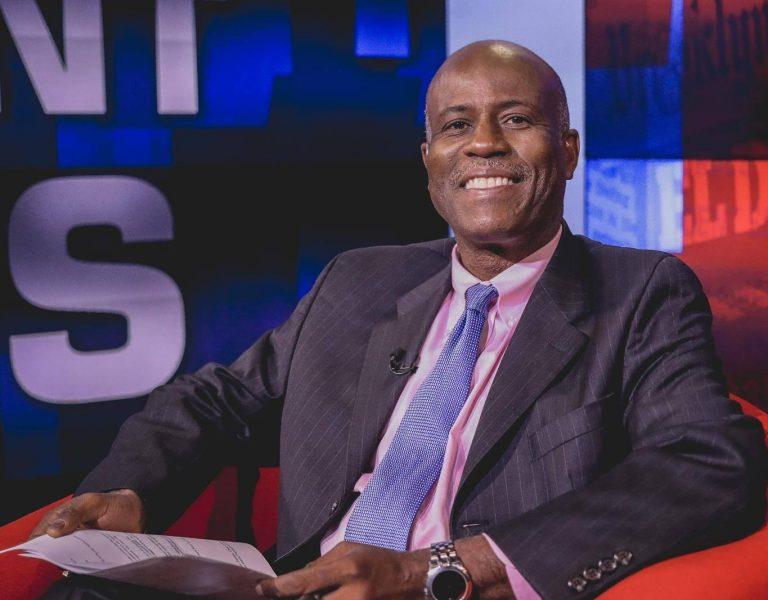
With Oligarchs in Charge, Haiti Not Truly Black-Run
“The torture and assassination of president Jovenel Moïse by unknown assailants laid bare the reality in Haiti in ways that we can no longer hide,” Garry Pierre-Pierre wrote Friday for the Haitian Times, the New York-based outlet for the Haitian diaspora of which he is editor.
“Contrary to popular belief, Haiti is not a Black country. It is a modern-day Apartheid state where a small minority of White people lord over the mass of the population who are Black.
“To try to explain this any other way is intellectual malfeasance. Haiti is presented either as an example of Black rule or, in White supremacist circles, of Black people’s inability to govern. I get asked the question in polite company: ‘Why is Haiti ungovernable?’
“The answer is that it is by design. It is set up that way. Haiti is ruled not by the Black faces who are elected. It is governed by a small cabal of oligarch families who migrated to Haiti. They are known as BAM BAM, phonetically in Creole ‘Gimme, Gimme.’ The acronym stands for the Brandt Acra, Madsen, Bigio, Apaid Mevs families.
“These families control 90% of Haiti’s wealth and give a veneer that Haiti is a Black-run country when in fact they control virtually every business and entity in Haiti. They allow the political class to exist to protect their narrow personal interests. . . .”
Pierre-Pierre concluded, “Haiti needs the same awakening that’s happening in the United States. This is your Black Lives Matter moment. You should question your privilege, the Haitian system that allows you social standing by the virtue of your skin tone. . . .”
- Editorial, Haitian Times: Diaspora: Stand up to keep Moïse slaying from being a fatal blow for Haiti
News Outlets Shouldn’t Let Others Define Them
 “Forced to choose between strict neutrality or defending democracy over the past four years, many news outlets opted for the latter, casting Donald Trump as a threat to the nation,”
“Forced to choose between strict neutrality or defending democracy over the past four years, many news outlets opted for the latter, casting Donald Trump as a threat to the nation,”
Perry Bacon Jr. (pictured) wrote Wednesday in The Washington Post. “This approach dismantled whatever was left of the facade that the media is a disinterested observer of U.S. politics — and created a new crisis for the industry.”
Bacon also wrote, “Moving forward, the nearly half of voters who backed a man that the press cast as racist and authoritarian aren’t going to forget the media’s judgment on their candidate. The media can’t credibly go back to posturing as disinterested or neutral — nor should it if Trump and Trumpism remain threats to democracy. It needs to chart a new path forward for a United States with a Trumpian Republican Party. Here are three thoughts on how to do that:
“CNN, the New York Times, The Post and similar outlets should embrace and announce their core values . . .
“Other national outlets should have different values — and be transparent about them, too. . . .
“Local newspapers and local public radio stations should be organized into democracy-defending institutions. . . .
“I don’t expect any of these three suggestions to be followed. But the main reason they won’t is deeply problematic: Most news organizations, while pushing and prodding virtually every other institution in American life to clarify and act on their values, have long refused to apply that principle to themselves.
“This is a mistake. Not clearly stating their values not only creates internal confusion, but it also allows outsiders to define the media’s values for them. As New York University journalism professor Jay Rosen often says, there is no ‘view from nowhere.’ The coverage decisions of the media are coming from somewhere — they should state those values honestly and clearly and act on them.”
- Howard Kurtz, Fox News: Media hail runaway Texas Democrats for blocking action on voting
- Joy Mayer, Trusting News: Today’s trust tip: Examine key elements of your crime coverage (part two)
- Evelyn Mateos, Editor & Publisher: New Project Addresses ‘Unpublishing the News’
- Michael Shapiro, Editor & Publisher: The Foxes are Winning: Partisan Local News Sites are Getting the Upperhand (July 8)
- Kimberly Atkins Stohr, Boston Globe: Libel laws, the Supreme Court, and Donald Trump’s not-so funny campaign pledge
Biden Takes Aim at Noncompete Clauses
“On Friday, President Joe Biden signed an executive order that got a lot of headlines because it takes aim at Big Tech, Big Mergers and maybe even Big Media,” Al Tompkins wrote Monday for the Poynter Institute. “Biden is urging the Federal Trade Commission to get busy making it more difficult for employers to enforce noncompete clauses in employment contracts. . . .
“Noncompete contract clauses are fairly common among television journalists, especially for anchors, who are forbidden from leaving one station and going to the station across town after their contract expires. Other news organizations also impose noncompete agreements on workers, especially if they are higher-profile journalists. . . .”
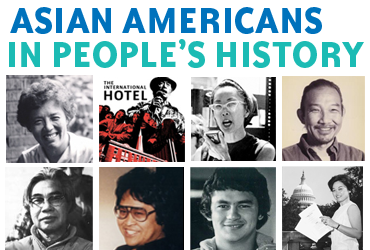
Illinois Mandates Teaching Asian American History
“Illinois has become the first state to mandate that Asian American history be part of its public school curriculum,” Kimmy Yam reported Monday for NBC Asian America.
“Gov. J.B. Pritzker signed a bill Friday that requires elementary and high schools to teach a unit of Asian American history beginning in the 2022-23 school year. The historic legislation, which passed after an aggressive campaign led in part by the nonprofit group Asian Americans Advancing Justice-Chicago, is scheduled to go into effect Jan. 1.
“Sociology professor Natasha Warikoo, a scholar of racial and ethnic inequality in education at Tufts University, said that the legislation is no doubt a win but that it is likely to be up to the educators and the community to determine how heavily schools will emphasize the teachings. . . .”
- Karen Attiah, Washington Post: Two voices of resistance to the critical race theory backlash in Oklahoma
- Rekha Basu, Des Moines Register: At all levels, Iowa Republicans ought to handle discomfort more like Ellie Kemper (June 10)
- Charles W. Blow, New York Times: Thaddeus Stevens and the Original Dreamers (June 7)
- Elvia Díaz, Arizona Republic: Republicans want to defund public schools one child at a time over critical race theory
- Eric Easter with John Whittington Franklin, Washington Post: ‘Our history has been so consciously suppressed,’ says historian John Whittington Franklin on America’s relationship with Black history
- Abraham Gutman, Philadelphia Inquirer: If you oppose banning critical race theory, you need to also reconsider another Pa. law
- Ibram X. Kendi, the Atlantic: There Is No Debate Over Critical Race Theory
- Tyler Kingkade, NBC News: Critical race theory battles are driving frustrated, exhausted educators out of their jobs
- Michael Luciano, Mediaite: Fox Guest Says Slavery ‘Was Not Initially a Racist Thing’ and That America Being Founded on Racism Is ‘Complete Lie’
- Tony Norman, Pittsburgh Post-Gazette: Democracy, civil rights and an ice-cream truck
- Cameron Smith, al.com: The broken lens of Critical Race Theory
- Adrian Walker, Boston Globe: Legislature must act to address home ownership gap
‘How To Diversify Your Station’s Workforce . . .’
Grady Tripp, VP and chief diversity officer at Tegna, explains how fostering diversity, inclusion and equity at TV stations can be cultivated by maintaining an inclusive work environment, recognizing and valuing underrepresented groups and securing buy-in from leadership. (Credit: TVNewsCheck)
- Elizabeth Green, Chalkbeat: One year later: Reflecting on our commitment to antiracism
- María Paula Mijares Torres, Latino Reporter, National Association of Hispanic Journalists: Under pressure to evolve, media companies seek diverse leadership
- Liz Worthington and Jeff Sonderman, American Press Institute: Track the diversity of your sources with Source Matters — an easy automated tool from API (June 21)

‘Culture of Inclusion’ Hailed on MSNBC’s 25th
“This week marks the 25th anniversary of MSNBC“ (scroll down), Tom Jones reported Tuesday for the Poynter Institute. “On Monday, MSNBC president Rashida Jones and Cesar Conde, chairman of the NBCUniversal News Group, celebrated the occasion at the Washington bureau of NBC News. They were joined by MSNBC Washington-based anchors Joy Reid, Andrea Mitchell, Kasie Hunt, Hallie Jackson, Tiffany Cross, and Geoff Bennett.
“Jones (pictured below with Mitchell) told the group, ‘I really want to make sure we’re all focused on what’s to come because we’ve got a lot of work to do and a lot of exciting opportunities ahead. I’m pleased that we get to do it together but the focus is real. We’ll be sharing some exciting news on how we’re looking ahead, on streaming and digital, long form projects, and more.’
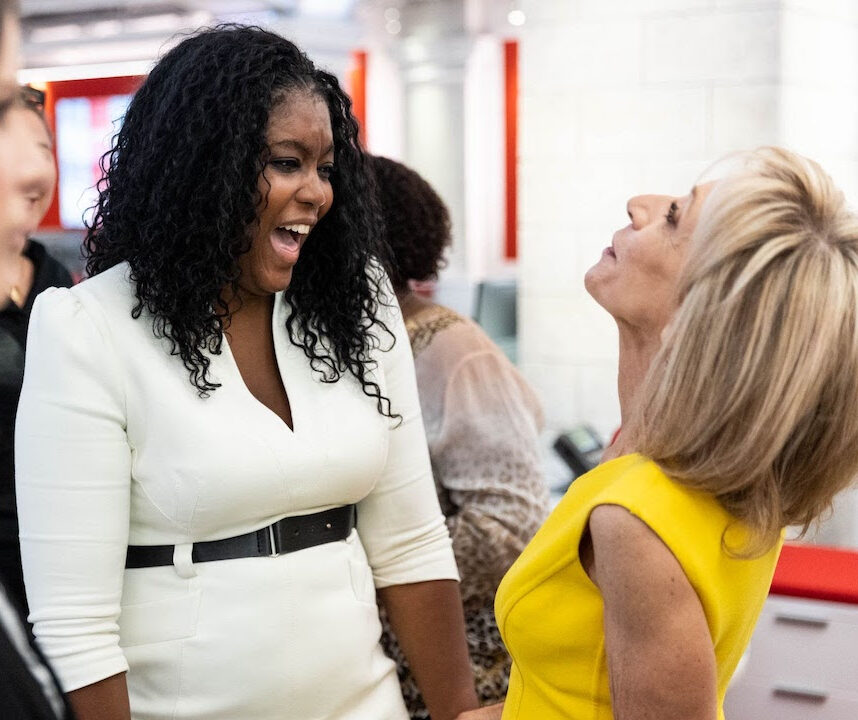 “She added, ‘What’s most important to me is our culture and our culture of inclusion. Cesar, a year ago, launched the 50% Challenge, which we’ve all been working towards and continuing to make a priority. This is something that will continue to be a priority for us moving forward.’ “
“She added, ‘What’s most important to me is our culture and our culture of inclusion. Cesar, a year ago, launched the 50% Challenge, which we’ve all been working towards and continuing to make a priority. This is something that will continue to be a priority for us moving forward.’ “
Brian Stelter added for CNN’s “Reliable Sources” column, “NBC Daily is running 25 days of forward-looking essays by MSNBC anchors, hosts and correspondents.”
Separately, Joe Mandese reported Wednesday for MediaPost, “Fox News Channel may have the biggest average audience, as well as gross revenues of the cable news networks, but when it comes to a key Madison Avenue metric — CPMs — MSNBC is the most valued.
“A MediaPost analysis of data released Tuesday by the Pew Research Center analyzing the 2020 audience size and economics of the major cable news networks, reveals that MSNBC generates an average of $423 per prime-time household reached annually, which is about 10% more valuable than the second most valued cable news network, Fox News’ $386 per prime-time household reached. . . .”
4 Held in Alleged Plot to Kidnap Iranian-American
 “Four Iranian nationals have been charged in an alleged plot to kidnap a US journalist and human rights activist living in New York, court documents show,” Madeline Holcombe and Brian Vitagliano reported Wednesday for CNN.
“Four Iranian nationals have been charged in an alleged plot to kidnap a US journalist and human rights activist living in New York, court documents show,” Madeline Holcombe and Brian Vitagliano reported Wednesday for CNN.
Masih Alinejad (pictured above), an activist with more than 5 million followers on Instagram, said she is the journalist targeted in the plot, the CNN report said. Authorities released the indictment and did not name Alinejad publicly, the writers continued.
“According to an indictment unsealed Tuesday in a New York federal court, Alireza Shavaroghi Farahani, aka Vezerat Salimi and Haj Ali, 50; Mahmoud Khazein, 42; Kiya Sadeghi, 35; and Omid Noori, 45, all of Iran, conspired to kidnap a Brooklyn journalist critical of the Iranian regime.
“The four were charged with conspiracies related to kidnapping, sanctions violations, bank and wire fraud and money laundering, according to the indictment. They are based in Iran and remain at large, authorities said.
“ ‘As alleged, four of the defendants monitored and planned to kidnap a U.S. citizen of Iranian origin who has been critical of the regime’s autocracy, and to forcibly take their intended victim to Iran, where the victim’s fate would have been uncertain at best,’ US Attorney for the Southern District of New York Audrey Strauss said in a news release.
“A fifth person, Niloufar ‘Nellie’ Bahadorifar, was also charged with sanctions violations conspiracy, bank and wire fraud conspiracy, money laundering conspiracy and structuring charges for allegedly providing financial services that supported the plot, according to the attorney’s office. . . .”
Pulitzer-Winning Photographer Dies in Afghanistan
 “The Pulitzer Prize-winning photojournalist Danish Siddiqui (pictured) was killed while covering a clash between Afghan security forces and the Taliban on Friday, as fighting between the insurgents and government troops intensifies across the country,” Christina Goldbaum and Fahim Abed reported for The New York Times.
“The Pulitzer Prize-winning photojournalist Danish Siddiqui (pictured) was killed while covering a clash between Afghan security forces and the Taliban on Friday, as fighting between the insurgents and government troops intensifies across the country,” Christina Goldbaum and Fahim Abed reported for The New York Times.
“Mr. Siddiqui, an Indian national and Reuters staff journalist, was embedded with members of Afghanistan’s elite special forces in the southern province of Kandahar, a former Taliban stronghold. He was killed on Friday morning when Afghan commandos, trying to retake a district surrounding a border crossing with Pakistan, came under Taliban fire, according to Reuters. . . .”
Short Takes
- The descendants of Frederick Douglass, the abolitionist publisher of The North Star whose “What to the Slave Is the Fourth of July?” speech was widely quoted over the Independence Day holiday, have created another outlet to honor journalists and others around the globe who have worked against racism. “We’ll be creating 10 art pieces recognizing Black Excellence, which we’re calling ‘Virtual Monuments,‘ ” says the Frederick Douglass Family Foundation. “These pieces could be songs, illustrations, short films, photo collages – but each one will celebrate an important moment or influential figure from Black History or Black Culture in its own, unique way. . . .”
- “Newsroom employment in the United States has dropped by 26% since 2008. But while newspapers have seen steep job losses during that span, digital-native news organizations have seen considerable gains, according to a new Pew Research Center analysis of data from the Bureau of Labor Statistics,” Mason Walker reported Tuesday for Pew. Walker added, “The bulk of the decline in total newsroom employment occurred in the first half of this 12-year period.”
 “Gray Television on Wednesday said it is selling WJRT, its ABC affiliate in Flint-Saginaw, Mich. . . . to Byron Allen’s Allen Media Broadcasting for $70 million dollars in cash,“ Mark K. Miller reported Wednesday for TVNewsCheck. Miller also wrote, “Allen Media Group was founded by Byron Allen (pictured) in 1993. Upon closing, Allen Media will own and operate 24 television stations in 20 markets, as well as 12 television networks, including The Weather Channel, and the free-streaming service Local Now. On April 29, Gray and Allen Media Group announced that Allen Media Group would acquire 10 TV stations currently owned by Quincy Media for $380 million upon Gray’s anticipated acquisition of Quincy in the third quarter. . . .”
“Gray Television on Wednesday said it is selling WJRT, its ABC affiliate in Flint-Saginaw, Mich. . . . to Byron Allen’s Allen Media Broadcasting for $70 million dollars in cash,“ Mark K. Miller reported Wednesday for TVNewsCheck. Miller also wrote, “Allen Media Group was founded by Byron Allen (pictured) in 1993. Upon closing, Allen Media will own and operate 24 television stations in 20 markets, as well as 12 television networks, including The Weather Channel, and the free-streaming service Local Now. On April 29, Gray and Allen Media Group announced that Allen Media Group would acquire 10 TV stations currently owned by Quincy Media for $380 million upon Gray’s anticipated acquisition of Quincy in the third quarter. . . .”
- “The Biden administration is formally inviting United Nations racism and human rights envoys to visit the United States amid a contentious ongoing domestic debate over the treatment of minorities in America,” Matthew Lee reported Wednesday for the Associated Press. . . . Secretary of State Antony Blinken also welcomed the adoption of a resolution by the Geneva-based U.N. Human Rights Council to address racism directed against Africans and people of African descent. . . .”
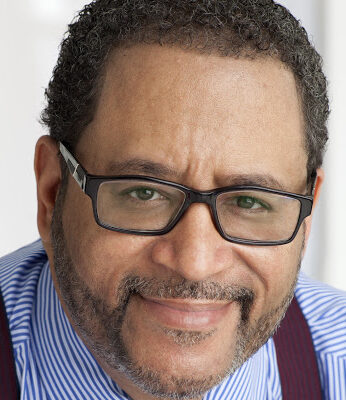 “Georgetown conducted an investigation into Professor Michael Eric Dyson (pictured) beginning in February 2020 for allegations of harassment and repeated attempts to establish an off-campus relationship with a female student in one of his Georgetown classes, according to the student and emails obtained by the Voice,” Sarah Watson, Caroline Hamilton and Paul James reported June 1 for the Georgetown Voice, a community newspaper in the nation’s capital. “The Voice is unable to confirm if Dyson’s move to Vanderbilt [University] was related to the . . . investigation. Dyson did not respond to multiple requests for comment on this matter. . . . Dyson is a contributing opinion writer at The New York Times, and has worked as a contributing editor at The New Republic and ESPN’s Undefeated. He is a commentator on National Public Radio, MSNBC, CNN, and is a recurring guest on Real Time with Bill Maher.“
“Georgetown conducted an investigation into Professor Michael Eric Dyson (pictured) beginning in February 2020 for allegations of harassment and repeated attempts to establish an off-campus relationship with a female student in one of his Georgetown classes, according to the student and emails obtained by the Voice,” Sarah Watson, Caroline Hamilton and Paul James reported June 1 for the Georgetown Voice, a community newspaper in the nation’s capital. “The Voice is unable to confirm if Dyson’s move to Vanderbilt [University] was related to the . . . investigation. Dyson did not respond to multiple requests for comment on this matter. . . . Dyson is a contributing opinion writer at The New York Times, and has worked as a contributing editor at The New Republic and ESPN’s Undefeated. He is a commentator on National Public Radio, MSNBC, CNN, and is a recurring guest on Real Time with Bill Maher.“
 “In the summer of 1983, The Times published a series on Southern California’s Latino community,” the Los Angeles Times reports. “It was produced by a team of Latino editors, writers and photographers. The idea was to move beyond stereotypes and to produce stories that described Latinos in their full dimension, using feature articles, first-person stories, oral histories, commentaries and photos. They covered stories of success, struggle, art, politics, family, religion, culture, education, farm labor and history. In 1984, the series won the Pulitzer Prize for Public Service. The stories are now available in digital form for the first time.”
“In the summer of 1983, The Times published a series on Southern California’s Latino community,” the Los Angeles Times reports. “It was produced by a team of Latino editors, writers and photographers. The idea was to move beyond stereotypes and to produce stories that described Latinos in their full dimension, using feature articles, first-person stories, oral histories, commentaries and photos. They covered stories of success, struggle, art, politics, family, religion, culture, education, farm labor and history. In 1984, the series won the Pulitzer Prize for Public Service. The stories are now available in digital form for the first time.”
- “”ESPN host and analyst Jay Williams has tested positive for Covid-19, and will miss the remainder of the NBA Finals,” Bruce Haring reported Friday for Deadline.” Twitter
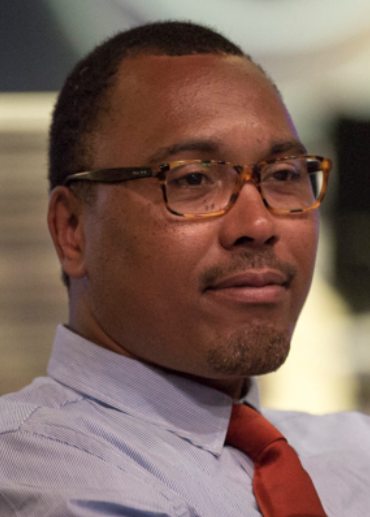 Co-senior broadcast producers Elizabeth Turner and Alturo Rhymes (pictured) will share day-to-day management of the “CBS Evening News,” Stephen Battaglio wrote Friday for the Los Angeles Times, until CBS names a replacement for Jay Shaylor. Battaglio reported that Shaylor is leaving as executive producer. On Monday, Shaylor announced that Turner and Rhymes had been promoted to co-senior broadcast producers. “Rhymes joined CBS News back in 2005, and has covered nearly every major news story for the network since that time — producing in the field during natural disasters such as Hurricane Katrina and at man-made disasters, including the shootings in Newtown. ‘His passion for shining a light on people who don’t always get the spotlight has made the broadcast stronger,’ Shaylor wrote. . . .”
Co-senior broadcast producers Elizabeth Turner and Alturo Rhymes (pictured) will share day-to-day management of the “CBS Evening News,” Stephen Battaglio wrote Friday for the Los Angeles Times, until CBS names a replacement for Jay Shaylor. Battaglio reported that Shaylor is leaving as executive producer. On Monday, Shaylor announced that Turner and Rhymes had been promoted to co-senior broadcast producers. “Rhymes joined CBS News back in 2005, and has covered nearly every major news story for the network since that time — producing in the field during natural disasters such as Hurricane Katrina and at man-made disasters, including the shootings in Newtown. ‘His passion for shining a light on people who don’t always get the spotlight has made the broadcast stronger,’ Shaylor wrote. . . .”
- In California, “Conservative talk show host Larry Elder joined a growing field of Republican candidates in the California recall on Monday, telling his national radio audience that he will focus on crime, homelessness, housing costs and school choice during his campaign to replace Gov. Gavin Newsom,” Carla Marinucci reported for Politico. Salem Radio Network will give Elder’s slot to Carl Jackson, Radio Ink reported Tuesday. “Jackson already has a show on Salem owned AM 950 The Answer in Orlando where he owns a business.” However, the Associated Press reported Sunday that Elder wasn’t on a list of 41 candidates that the state released Saturday. and that Ying Ma, an Elder campaign spokeswoman, said she expected Elder to be on the final list issued next week.
- “NBCU’s streaming service Peacock is expanding MSNBC content, renaming Peacock’s “The Choice” “The Choice from MSNBC,” Ted Johnson reported Thursday for Deadline. Johnson added, “coming in August will be The Washington Post’s First Look with Jonathan Capehart, in which the columnist and MSNBC host will moderate a debrief and roundtable featuring Post talent as well as newsmakers. Capehart hosts MSNBC’s The Sunday Show and also is an editorial board member of the Post.”
- “WCBS anchor Cindy Hsu opened up on the New York CBS-owned station about her personal experience living with depression,” Kevin Eck reported Thursday for TVSpy. “In an intimate interview with Dana Tyler, Hsu, who has worked at WCBS since 1993, said watching others struggle with the isolation brought on by the pandemic pushed her to share her story. . . .”
- A few weeks ago, the Walter Cronkite School of Journalism and Mass Communication at the University of Arizona “shared a press release on Twitter recognizing nine students who are working as fellows in the prestigious Carnegie-Knight News21 investigative reporting initiative this summer,” Battinto Batts Jr., the school’s new dean, wrote with two other school officials Wednesday. “Our intention was to congratulate and recognize the Cronkite students, who are included in a larger cohort of 35 students from different institutions. This post drew criticism because of the lack of racial and ethnic diversity among the Cronkite fellows. It failed to reflect the variety of voices included in the News21 newsroom and the care the fellows take while reporting in communities across the country. . . .” The National Association of Hispanic Journalists was among the critics.
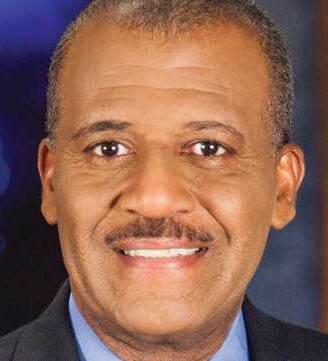 In Baltimore, “WBAL-TV 11 announced Wednesday that veteran journalist and news anchor Stan Stovall (pictured) is preparing for his eventual retirement in 2022,” the station said. “Stovall, whose career as a local journalist spans more than five decades, will continue to anchor WBAL-TV 11’s market-leading 6 p.m. newscast as Andre Hepkins joins Deborah Weiner weeknights at 11 p.m. . . .”
In Baltimore, “WBAL-TV 11 announced Wednesday that veteran journalist and news anchor Stan Stovall (pictured) is preparing for his eventual retirement in 2022,” the station said. “Stovall, whose career as a local journalist spans more than five decades, will continue to anchor WBAL-TV 11’s market-leading 6 p.m. newscast as Andre Hepkins joins Deborah Weiner weeknights at 11 p.m. . . .”
- “A notable staffing announcement coming out of CBS News on Wednesday: Lance Frank has been named svp of communications for CBS News, expanding his portfolio across a range of the news division’s priorities,” A.J. Katz reported Wednesday for TVNewser. Frank will “now have oversight of several new areas including the promotion of CBS cross-division initiatives, 60 Minutes+, and the Race & Culture Unit. He’ll also continue to oversee comms for the CBS Evening News and the Washington D.C. Bureau.”
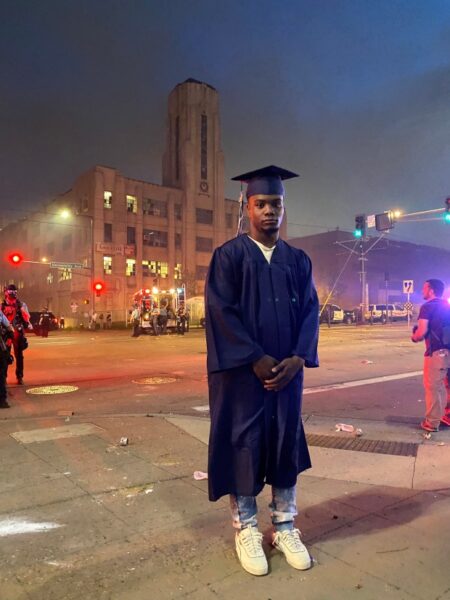
- Sometimes one of the most interesting things about a photograph is what’s just outside the frame,” John Edwin Mason wrote June 26, 2020, for National Geographic. “That’s the case with the portrait of Deveonte Joseph that Nathan Aguirre made on a street corner in St. Paul, Minnesota a month ago during the protests after the murder of George Floyd, an unarmed black man, by Derek Chauvin, a white Minneapolis police officer. Across the street from where Joseph stood, barely outside of the camera’s view, is a building that connects him to another young black man who lived in St. Paul nearly a century ago. The building is Gordon Parks High School. Its namesake was a man who, as a photojournalist, became one of the mid-20th century’s most influential interpreters of African American life and culture. The connection between Joseph and the school reveals much about the enduring nature of racial oppression in the United States and, at the same time, allows us to think about how that oppression and resistance to it have been represented in photography. . . .”
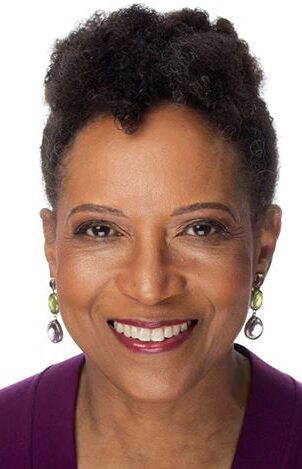 Mary C. Curtis (pictured), Chandra Thomas Whitfield, Yvonne Latty and a team from WGBH in Boston were among the winners of the Clarion Awards of the Association for Women in Communications. Curtis won in the online journalism category for a collection of columns; Whitfield led among podcasters for her “In the Gap,” described as “A Podcast About How And Why Black Women Aren’t Getting Their Green“; Latty was cited in the “radio feature story” category for “Alzheimer’s in Color,” about caring for her mother, which aired on “Latino USA.” Honors for “television talk show — local or regional” went to “Basic Black: Racial Disparities and Covid-19.” Delores Edwards was executive producer; Callie Crossley, host; Kavontae Smalls was associate producer at WGBH in Boston, which now brands itself simply as “GBH.”
Mary C. Curtis (pictured), Chandra Thomas Whitfield, Yvonne Latty and a team from WGBH in Boston were among the winners of the Clarion Awards of the Association for Women in Communications. Curtis won in the online journalism category for a collection of columns; Whitfield led among podcasters for her “In the Gap,” described as “A Podcast About How And Why Black Women Aren’t Getting Their Green“; Latty was cited in the “radio feature story” category for “Alzheimer’s in Color,” about caring for her mother, which aired on “Latino USA.” Honors for “television talk show — local or regional” went to “Basic Black: Racial Disparities and Covid-19.” Delores Edwards was executive producer; Callie Crossley, host; Kavontae Smalls was associate producer at WGBH in Boston, which now brands itself simply as “GBH.”
- “The New York Times today announced that the Ford Foundation will fund its new Disability Journalism Fellowship,” the Times said Thursday. “The two-year program will recruit one early career journalist each year to work at The Times to produce stories that illuminate and explain issues that are relevant to the 19 percent of the U.S. population who currently live with a disability – and to countless others who care about them and these matters. The program will provide fellows with mentorship, a peer network and specialized training on how to cover disabilities. The nonprofit National Center for Disability and Journalism will serve as a training partner to the fellows and other members of the newsroom. Ford is providing a $150,000 grant to create the new fellowship. . . .”
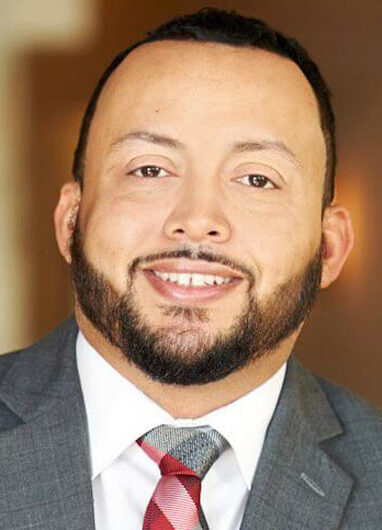 “Howard University has appointed Sean Plater (pictured) as the new general manager of its noncommercial WHUT [television station in] Washington,” Mark K. Miller reported Thursday for TVNewsCheck. “Plater will retain his role as general manager of the school’s WHUR-FM.” Miller also wrote, “At the helm of WHUT, Plater said he has plans to enhance original content production and to expand the utilization of PBS community engagement resources as well as the implementation of the new broadcast technology NextGen TV (ATSC 3.0). Plater has led the Howard University NextGen TV broadcast collaborative over the past year. . . .”
“Howard University has appointed Sean Plater (pictured) as the new general manager of its noncommercial WHUT [television station in] Washington,” Mark K. Miller reported Thursday for TVNewsCheck. “Plater will retain his role as general manager of the school’s WHUR-FM.” Miller also wrote, “At the helm of WHUT, Plater said he has plans to enhance original content production and to expand the utilization of PBS community engagement resources as well as the implementation of the new broadcast technology NextGen TV (ATSC 3.0). Plater has led the Howard University NextGen TV broadcast collaborative over the past year. . . .”
- ”For the young journalists leading the way at historically Black colleges and universities, this last year was a learning opportunity like no other,” Jaden Edison, a recent graduate of Texas State University, reported Friday for the Poynter Institute. “They had to lead their newsrooms through historic protests against anti-Black racism, a health crisis that disproportionately affected them and an election with one of their own on the ballot — and not flunk out of school while doing it. Some even had to work through the deaths of their peers and loved ones. . . .”
- The Radio Television Digital News Association says it “is seeking diverse candidates to fill 9 open positions on the RTDNA/F Board of Directors. We’re looking for service-oriented, collaborative, energetic news leaders to join our leadership team. . . .”
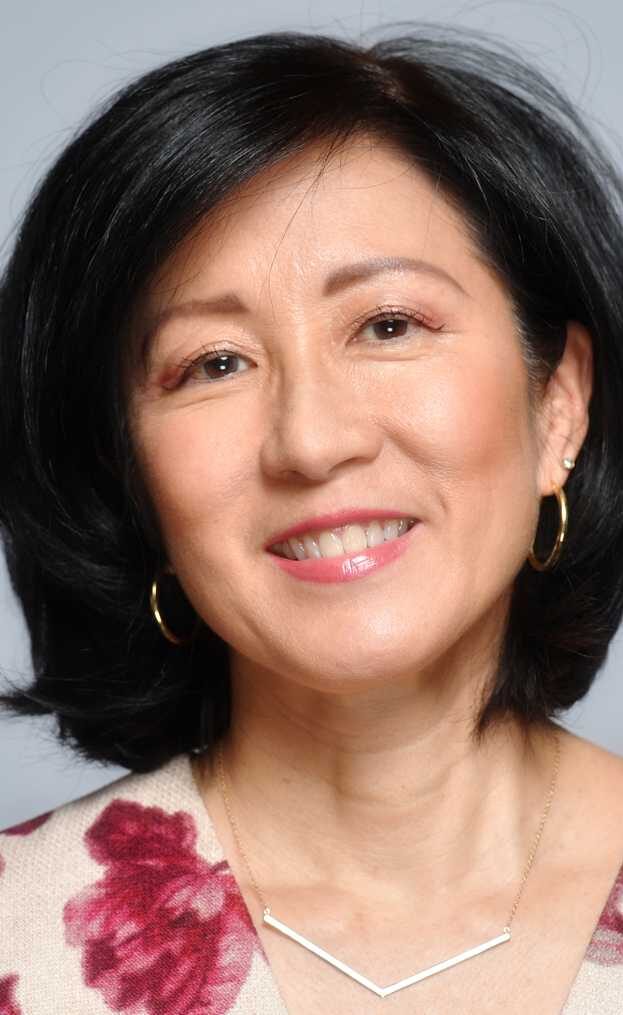 The Justice Department sought the email records of three Washington Post reporters — Adam Entous, Greg Miller and Ellen Nakashima (pictured) — the day before William P. Barr stepped down as attorney general, Katie Benner and Charlie Savage reported Tuesday for The New York Times, “in a last-ditch effort to identify who had told the newspaper about conversations between Trump campaign officials and the Russian ambassador, newly unsealed court documents show.”
The Justice Department sought the email records of three Washington Post reporters — Adam Entous, Greg Miller and Ellen Nakashima (pictured) — the day before William P. Barr stepped down as attorney general, Katie Benner and Charlie Savage reported Tuesday for The New York Times, “in a last-ditch effort to identify who had told the newspaper about conversations between Trump campaign officials and the Russian ambassador, newly unsealed court documents show.”
- “The Standing Committee of Correspondents unanimously approved Latino Rebels, part of Futuro Media, for a three-month, temporary credential in the Senate Daily Press Gallery at their meeting on June 28,” Pablo Manríquez, Latino Rebels’ Washington correspondent, reported Monday for his organization.
 “Penguin Random House (PRH) has debuted its All Ways Black platform, putting the focus on Black writers by featuring wide-ranging works created by literary icons of the past and present,” Sara Century reported Tuesday for Adweek. “All Ways Black spotlights book lists curated by influencer Cree Myles, the founding editor of the platform. Celebrating groundbreaking, genre-defining works of Black literature such as Black Futures by Kimberly Drew and Jenna Wortham (pictured, with Wesley Morris), Afro-Vegan by Bryant Terry and Rainbow In The Cloud by Maya Angelou, All Ways Black will include appearances by favorite authors via Instagram Live, as well as regular book and playlist suggestions.” Wortham is a staff writer for the New York Times Magazine and co-host with Morris of the Times podcast “Still Processing.”
“Penguin Random House (PRH) has debuted its All Ways Black platform, putting the focus on Black writers by featuring wide-ranging works created by literary icons of the past and present,” Sara Century reported Tuesday for Adweek. “All Ways Black spotlights book lists curated by influencer Cree Myles, the founding editor of the platform. Celebrating groundbreaking, genre-defining works of Black literature such as Black Futures by Kimberly Drew and Jenna Wortham (pictured, with Wesley Morris), Afro-Vegan by Bryant Terry and Rainbow In The Cloud by Maya Angelou, All Ways Black will include appearances by favorite authors via Instagram Live, as well as regular book and playlist suggestions.” Wortham is a staff writer for the New York Times Magazine and co-host with Morris of the Times podcast “Still Processing.”
- WarnerMedia News & Sports is partnering with the organization Most Influential People of African Descent “in recognition of the remaining three years of the UN’s proclaimed International Decade of People of African Descent to support the contributions of people of African descent worldwide,” said Johnita Due, SVP and Chief Diversity, Equity and Inclusion Officer for WarnerMedia News and Sports, which includes brands such as CNN Original Series and CNN Films, Turner Sports + BleacherReport.” Part of the partnership is to “collaborate on events, panels, screenings that amplify Black creatives and voices globally, including but not exclusive to film makers, musicians, actors, artists, etc.,” a spokesperson explains.
- I
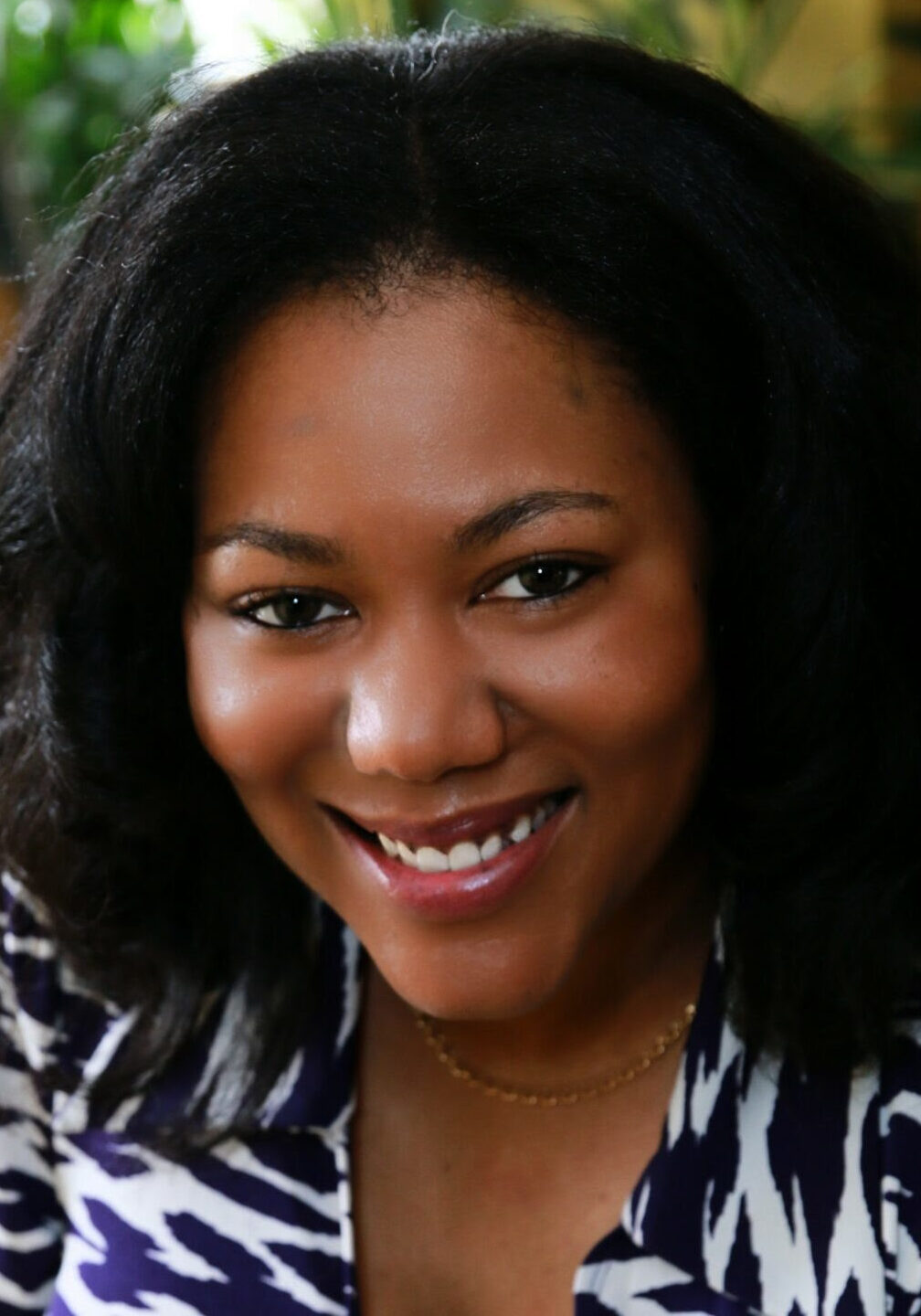 In Washington, “After a competitive, monthslong search process, WAMU has hired Erika Pulley-Hayes (pictured) to lead the station as its new general manager,” Elliot C. Williams reported Tuesday for DCist. “Pulley-Hayes, president and CEO of Community Communications, Inc., an NPR affiliate in Orlando, Florida, will start her new role August 30.”
In Washington, “After a competitive, monthslong search process, WAMU has hired Erika Pulley-Hayes (pictured) to lead the station as its new general manager,” Elliot C. Williams reported Tuesday for DCist. “Pulley-Hayes, president and CEO of Community Communications, Inc., an NPR affiliate in Orlando, Florida, will start her new role August 30.”
- “Samuel Gardner III is moving up within CBS Television Stations,” Kevin Eck reported July 9 for TV Spy. “Gardner is joining Dallas CBS-owned station KTVT as the content director and assistant news director. Currently, he’s an assignment manager at Philadelphia CBS station KYW.”
- “Netflix hired N’Jeri Eaton, previously head of content for Apple Podcasts, to lead podcasting for the streaming giant’s marketing division,” Todd Spangler reported July 8 for Variety. Eaton also previously worked for NPR.
- “Quincy Media’s NBC affiliate WEEK Peoria, Ill., has promoted Assistant News Director Leon Hendricks to news director,” Mark K. Miller reported for TVNewsCheck. “He will lead WEEK news operations (and those of its Heart of Illinois ABC subchannel) effective immediately and will also be responsible for all online and digital news content.”
- “Former presidential candidate and Housing and Urban Development secretary Julián Castro has joined NBC News and MSNBC as a political analyst,” A.J. Katz reported Monday for TVNewser.
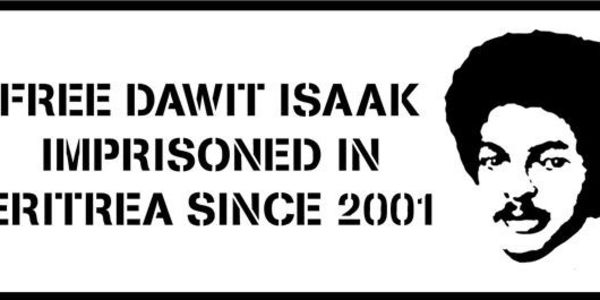
- “South African authorities must swiftly and thoroughly investigate recent attacks on media outlets and journalists covering civil unrest in the country,” the Committee to Protect Journalists said Tuesday. “Since July 4, protests have broken out in at least two provinces, KwaZulu-Natal and Gauteng, which began over the jailing of former President Jacob Zuma but have spiraled into general looting and rioting, according to news reports. Demonstrators and looters attacked at least four community radio stations overnight and today and have robbed and assaulted journalists covering the unrest over the past 10 days, according to news reports and journalists who spoke with CPJ. . . .”

- As war continues between the Ethiopian government and forces in Ethiopia’s northern Tigray region, the Ethiopian Human Rights Commission is urging authorities to follow due process and release 21 staff members and journalists who have been in detention since June 30, July 1 and July 2, if court orders were not issued for their arrests, Bileh Jean reported Monday for the Addis Standard. The commission statement comes amid a fresh wave of crackdown on Tigrayan civilians in the capital, Addis Ababa. The Ethiopian government Friday revoked the license of the Addis Standard’s publisher, accusing the monthly magazine and news website of advancing the agenda of a “terrorist group,” without providing more specifics, according to the Voice of America. The arrested journalists are from the independent broadcaster Awlo Media Center and YouTube-based broadcaster Ethio-Forum, both of which have been critical of the government.
- “In Ethiopia, Facebook is pretty much the equivalent of the internet and the main source of digital news. Add to this an under-resourced mainstream media industry and low levels of media literacy and you get the perfect recipe for a misinformation disaster,” Osama Gaweesh reported Thursday for journalism.co.uk. “With a small team of four multilingual fact-checkers and two editors-researchers, HaqCheck monitors stories in English and four local languages across social and mainstream media. Their aim is to create in-house verification and data-analysis tools adapted to the Ethiopian context and help other African countries to set up their own fact-checking initiatives. . . .”

- “For nearly two weeks, South Africa’s media, to their credit, have been reporting on the increasing level of violence in Eswatini,” formerly Swaziland, “and we have seen journalists threatened, detained and tortured,” William Bird wrote July 8 for the Daily Maverick in South Africa.
- “Egyptian authorities released three activists and three journalists Sunday after months in pre-trial detention, officials and lawyers said, the Associated Press reported July 19. “The releases came after U.S. officials, among others, expressed concern over the arrests and harassment of rights advocates and critics of President Abdel Fattah el-Sissi’s government.”
To subscribe at no cost, please send an email to journal-isms+subscribe@groups.io and say who you are.
Facebook users: “Like” “Richard Prince’s Journal-isms” on Facebook.
Follow Richard Prince on Twitter @princeeditor
Richard Prince’s Journal-isms originates from Washington. It began in print before most of us knew what the internet was, and it would like to be referred to as a “column.” Any views expressed in the column are those of the person or organization quoted and not those of any other entity. Send tips, comments and concerns to Richard Prince at journal-isms+owner@
View previous columns (after Feb. 13, 2016).
View previous columns (before Feb. 13, 2016)
- Diversity’s Greatest Hits, 2018 (Jan. 4, 2019)
- Book Notes: Is Taking a Knee Really All That? (Dec. 20, 2018)
- Book Notes: Challenging ’45’ and Proudly Telling the Story (Dec. 18, 2018)
- Book Notes: Get Down With the Legends! (Dec. 11, 2018)
- Journalist Richard Prince w/Joe Madison (Sirius XM, April 18, 2018) (podcast)
- Richard Prince (journalist) (Wikipedia entry)
- February 2018 Podcast: Richard “Dick” Prince on the need for newsroom diversity (Gabriel Greschler, Student Press Law Center, Feb. 26, 2018)
- Diversity’s Greatest Hits, 2017 — Where Will They Take Us in the Year Ahead?
- Book Notes: Best Sellers, Uncovered Treasures, Overlooked History (Dec. 19, 2017)
- An advocate for diversity in the media is still pressing for representation, (Courtland Milloy, Washington Post, Nov. 28, 2017)
- Morgan Global Journalism Review: Journal-isms Journeys On (Aug. 31, 2017)
- Diversity’s Greatest Hits, 2016
- Book Notes: 16 Writers Dish About ‘Chelle,’ the First Lady
- Book Notes: From Coretta to Barack, and in Search of the Godfather
- Journal-isms’ Richard Prince Wants Your Ideas (FishbowlDC, Feb. 26, 2016)
- “JOURNAL-ISMS” IS LATEST TO BEAR BRUNT OF INDUSTRY’S ECONOMIC WOES (Feb. 19, 2016)
- Richard Prince with Charlayne Hunter-Gault,“PBS NewsHour,” “What stagnant diversity means for America’s newsrooms” (Dec. 15, 2015)
- Book Notes: Journalists Follow Their Passions
- Book Notes: Journalists Who Rocked Their World
- Book Notes: Hands Up! Read This!
- Book Notes: New Cosby Bio Looks Like a Best-Seller
- Journo-diversity advocate turns attention to Ezra Klein project (Erik Wemple, Washington Post, March 5, 2014)
When you shop @AmazonSmile, Amazon will make a donation to Journal-Isms Inc. https://t.co/OFkE3Gu0eK
— Richard Prince (@princeeditor) March 16, 2018

